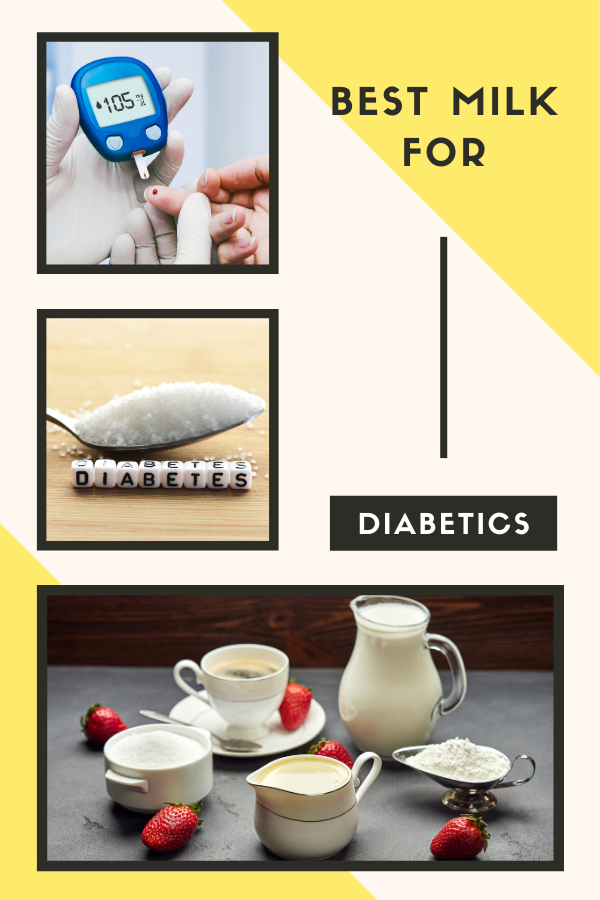Dairy products are rich sources of readily available and highly absorbable calcium, but milk offers even more nutrients such as vitamins A and D, protein, riboflavin, zinc, B12, and iodine.
Plus, milk contains low glycemic index carbohydrates, which provide energy and coupled with the other nutrients, are important for good health.
If you have a medical condition or allergies, there are many non-dairy alternatives on the market today. The same applies if you’re just looking for milk alternatives due to perceived health benefits or taste preferences.
For diabetics though, not all types of milk are beneficial, so you need to be careful about the carbs, saturated fats, nutritious calcium, sugar levels, and protein found in the milk you pick. This way, you can get the best milk for your dietary needs.
What To Look For In The Best Milk For Diabetics
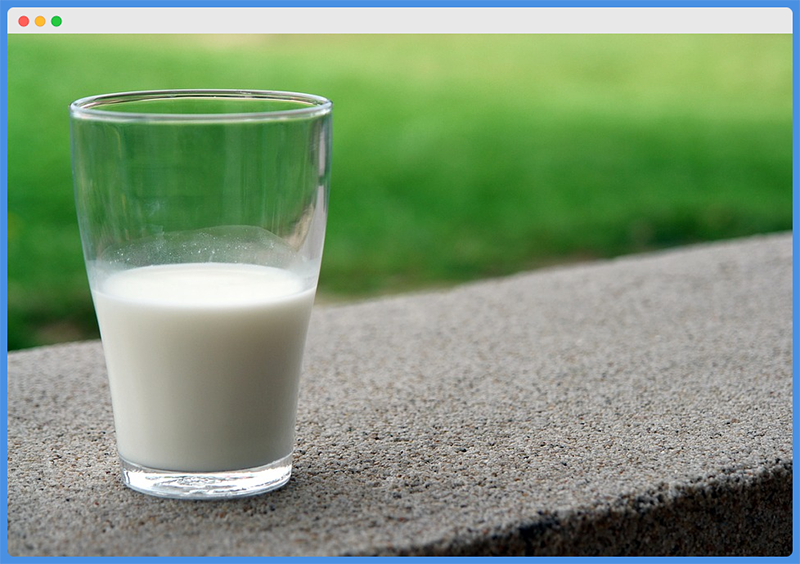
People with diabetes have special dietary needs owing to their susceptibility to certain bodily issues like bone fractures and inability to make or use insulin effectively.
While milk may be a staple of many diets, it may be a concern for diabetics because the carbohydrate count in milk can impact their blood sugar.
In milk, carbohydrates take the form of lactose, a natural sugar that delivers energy to your body. One 8oz serving of milk contains up to 12 grams of carbs, which is why the American Diabetes Association (ADA) recommends that you individualize carb content in your meals in order to get healthy levels of blood sugar.
Not only that, but the ADA recommends that diabetics check their blood sugar before and after every meal so as to determine which food and in what amount their bodies and blood sugar respond.
For all these reasons and the fact that people with diabetes may have high cholesterol or triglycerides in their blood, there’s a need for milk alternatives that won’t impact blood sugar or exacerbate their condition further.
Best Milk For Diabetics
The best milk for diabetics will depend on several things including their daily diet, the flavors they prefer, and their daily carb intake.
There are several nutritious milk options that are high in taste and low in carbs that diabetics can choose from. Below are 10 of the top milk options for people with diabetes.
1. Full Fat Milk
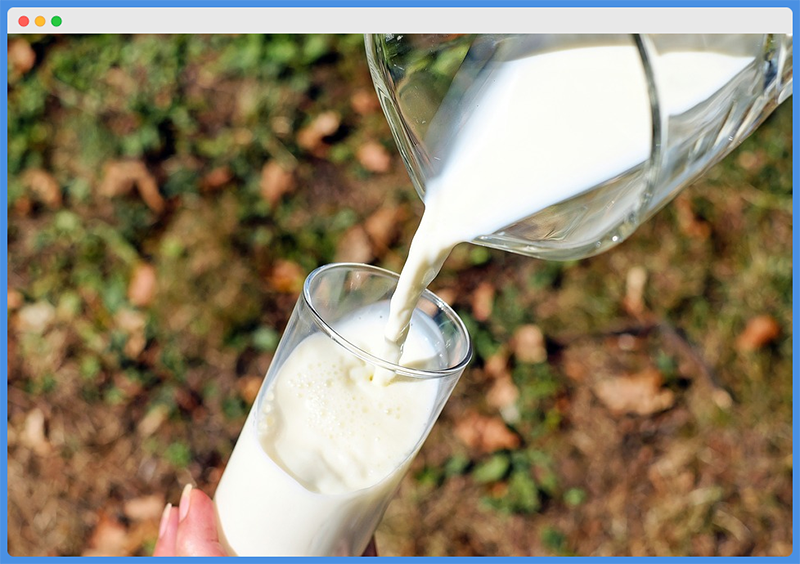
Full fat milk is an ideal option for kids below the age of two years, as it contains about 4 percent fat and provides the extra kilojoules and energy for their growth and development.
Plus, the milk is recommended for those at risk of malnutrition or struggling to gain weight.
2. Skim/Low Fat Milk
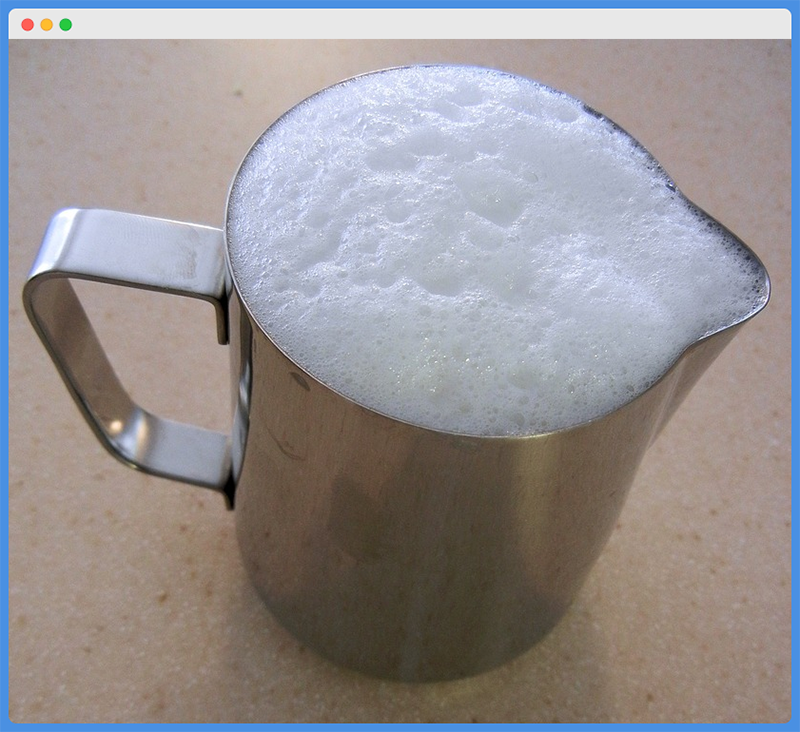
Skim and low-fat milk contain 0.01 percent and 1 percent of fat respectively, and they’re highly recommended for people with diabetes as the milk helps reduce kilojoule and saturated fat intake.
However, the watery taste of skim milk isn’t preferred by most people, which is where low or reduced-fat milk is a good compromise.
3. Lactose-free Milk
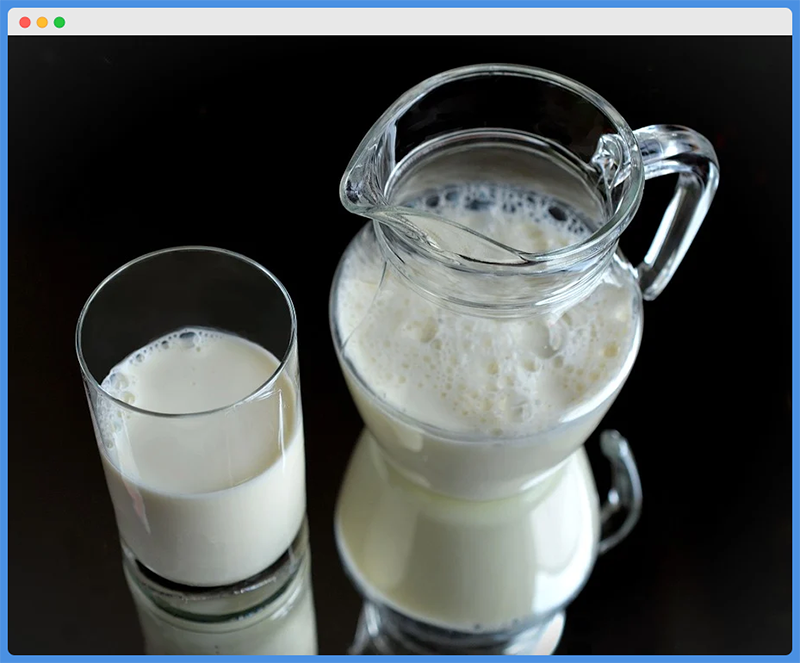
Lactose is a sugar naturally found in cow milk, which may compromise the health of a person with diabetes. However, there are lactose-free milk options that are recommended for people who can’t digest the naturally occurring sugar or experience lactose intolerance.
An enzyme is added to lactose-free milk, which pre-digests the lactose so that lactose-intolerant people can take the milk without issues.
4. Fat-free Grass Milk

Grass milk is free of fat and is derived from organic, grain-free, and pasture-fed cows. The milk from such cows may be higher in omega-3 fatty acids that are healthy for the heart compared to other types of milk.
On top of that, it contains 8 grams of protein and 12 grams of carbs per cup, so you can drink it by the glass, or add it to your tea or coffee and enjoy its rich, clean flavor.
5. Soy Milk
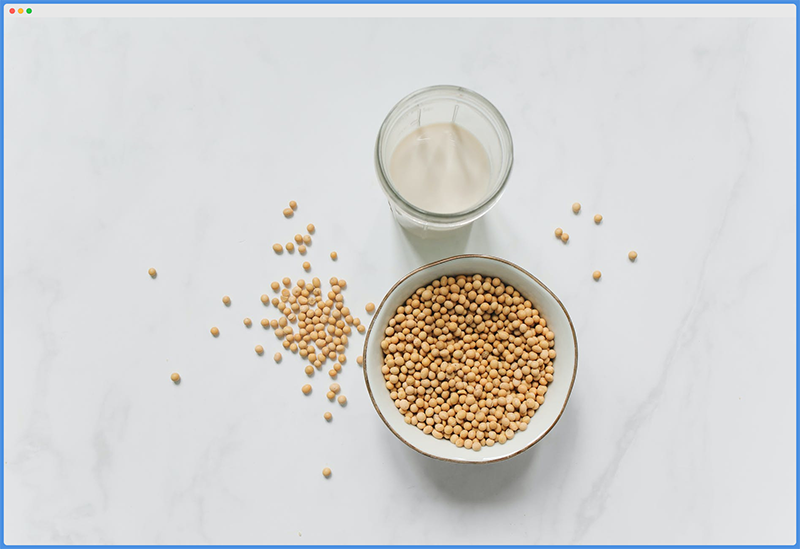
Soy milk is a great alternative for diabetics as it doesn’t contain milk protein or lactose. It’s a close alternative to taking cow milk in terms of carb and protein content, but it’s naturally lower in calcium.
If you go for soy milk, pick a calcium-fortified variety with at least 100ml/100mg.
The milk is a high-calcium alternative that’s high in vitamin B12 and good to add to your smoothies.
6. Almond Milk
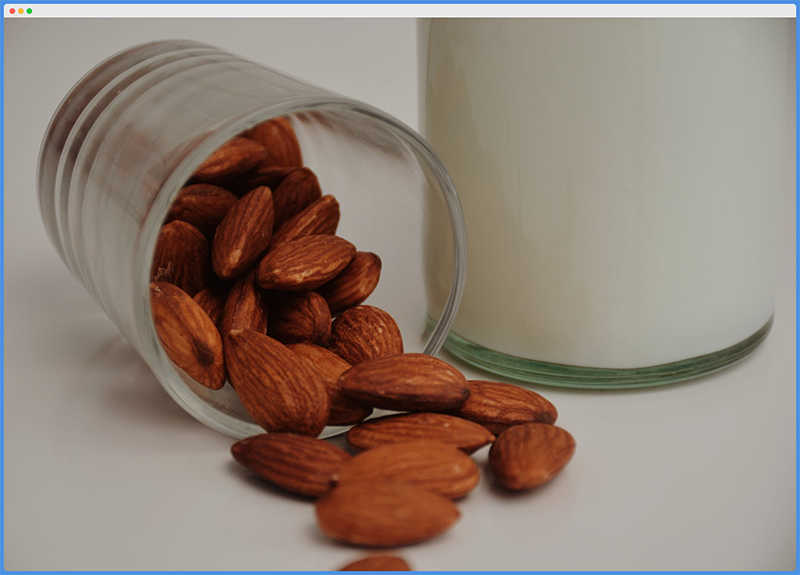
Almond milk is rich in calcium and slightly sweet. One cup of almond milk contains 2g of carbohydrates, 40 calories, and no saturated fat.
The milk has a distinct nutty flavor that makes it great for drinking with whole grain bread or breakfast cereal.
Plus, you can pick a no-added-sugar option if you use nut milk. The downside is that you won’t get as much nutrition from almond milk as you would from soy milk or cow’s milk.
7. A2 Milk

Naturally, milk contains two types of proteins: A1 and A2. Today, there are milks that only contain A2 protein owing to the selection of cows that produce the milk.
As of this writing, there’s no evidence to suggest that A2 milk is better compared to milk with both A1 and A2 proteins, but some people may experience less discomfort and intolerance with A2 milk.
8. Oat and Rice Milk
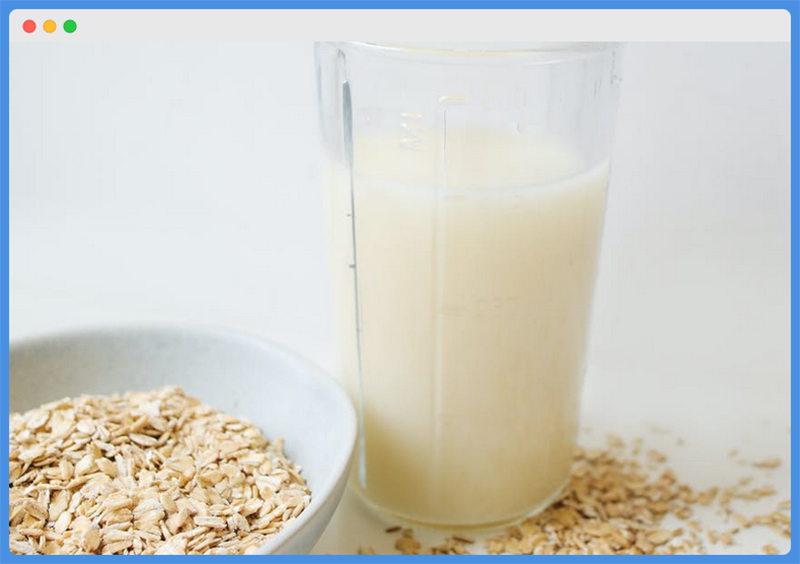
Oat and rice milk are made from grains and are generally high in carbs and low in protein. Specifically, oat milk is made from whole oat grains by extracting them with water, and the resulting milk has a rich creamy texture.
Rice milk is also plant-based, made from rice, and is naturally sweeter than other dairy alternative milks.
Plus, they lack the nutrition and fiber of consuming whole grains, so while they may not be the perfect choice for diabetics, you can keep the portion sizes small if you prefer the taste, but select a variety that’s fortified with calcium.
9. Low-Fat Goat Milk
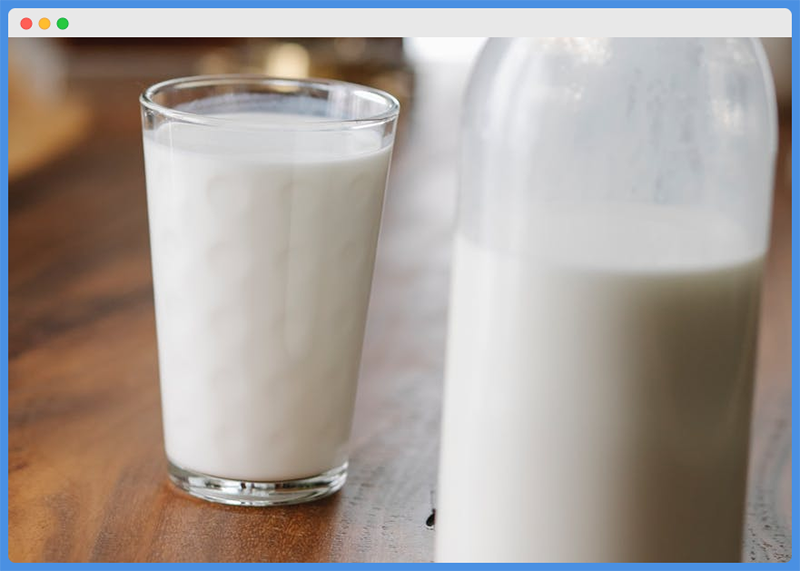
Goat milk is an often overlooked superfood but evidence shows that it’s been enjoyed for millennia. The milk boasts several health benefits owing to certain physical properties that set it apart, which impact health and digestibility.
Specifically, goat milk contains less Alpha-S1-Casein protein, which helps in growing, developing, and repairing the body.
It also contains different fats and proteins, is slightly lower in lactose, is blood pressure friendly, and is a good source of calcium and key vitamins.
Goat milk is also naturally lower in cholesterol and contains essential minerals like phosphorus for strong teeth and bones, iodine, potassium, and chloride.
Low-fat goat milk is sweet and fresh tasting. The milk is rich in calcium and contains 8 grams of protein and 11 grams of carbohydrates per cup.
You can use low-fat goat milk in milkshakes, but add a sugar substitute in place of real sugar when making your shakes.
10. Flax Milk
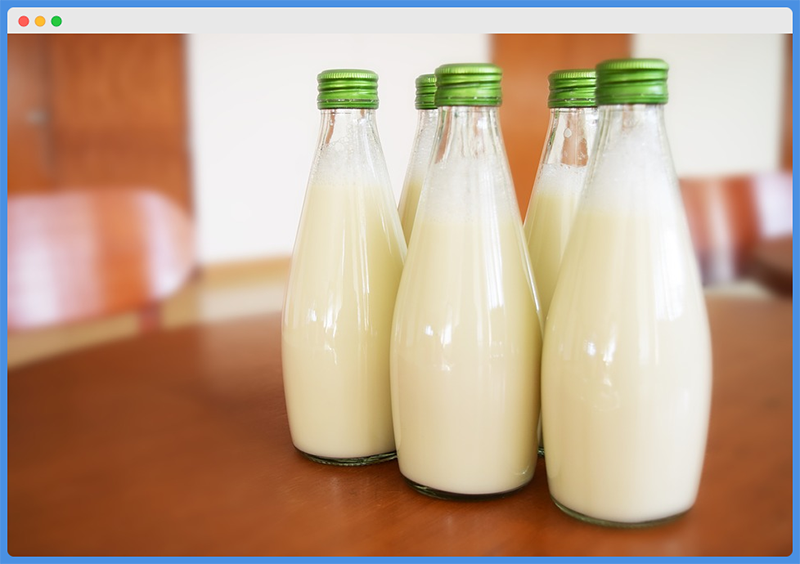
Flaxseed milk is based on the plant that produces whole flaxseeds or a combination of water and ground flaxseed meal.
The milk is gluten-free, dairy-free, soy-free, and nut-free and the keto and vegan options have a flavor similar to almond milk and can be used in various ways.
Plus, flax milk contains 3 grams of protein, 3 grams of fiber, and 3310 milligrams of ALA Omega 3, meaning you’ll get 100 percent of the flaxseed’s nutritional value. Other nutrients include vitamins A, B12, and D.
Unsweetened flax milk is a refreshing beverage that contains 25 calories and 1 gram of carbs per cup.
The milk supplies 1200 milligrams of omega-3 fatty acids that are good for the heart and is free of most allergens, so you can pour yourself some and enjoy.
What Type Of Milk Should Diabetics Avoid?
There are many types of milk options that don’t bode well with diabetics.
Specifically, people with diabetes need to steer clear of milks that are high in fat, sugar, and carbs including some flavored milks, flavored plant-based milks that tend to have high-fat content, and some low-fat milks that are high in carbs and sugar.
Can A Diabetic Take Camel Milk?
According to researchers, camel milk has been found to contain an insulin-like protein that can withstand gastric acid.
This way, there’s efficient absorption of the milk in the bloodstream, meaning that consumption of the milk can help improve the person’s levels of blood glucose.
A particular study of type 1 diabetes patients found that taking camel milk every day helped the patients lower their insulin needs by 30 percent.
Camel milk is also rich in the mineral zinc that’s involved in the production of insulin by beta-cells.
Wrapping Up
Milk is a healthy drink that you can enjoy. While regular cow milk may be the best choice for most people, diabetics and other people who follow a special or restricted diet require alternative milk options.
Before picking a carton of the best milk for diabetics, it’s important to select wisely so that you maximize nutrients and cut down on unnecessary sugar while monitoring your blood sugar levels.
Our top picks can add variety and interest to your diet and keep you healthy and strong.
